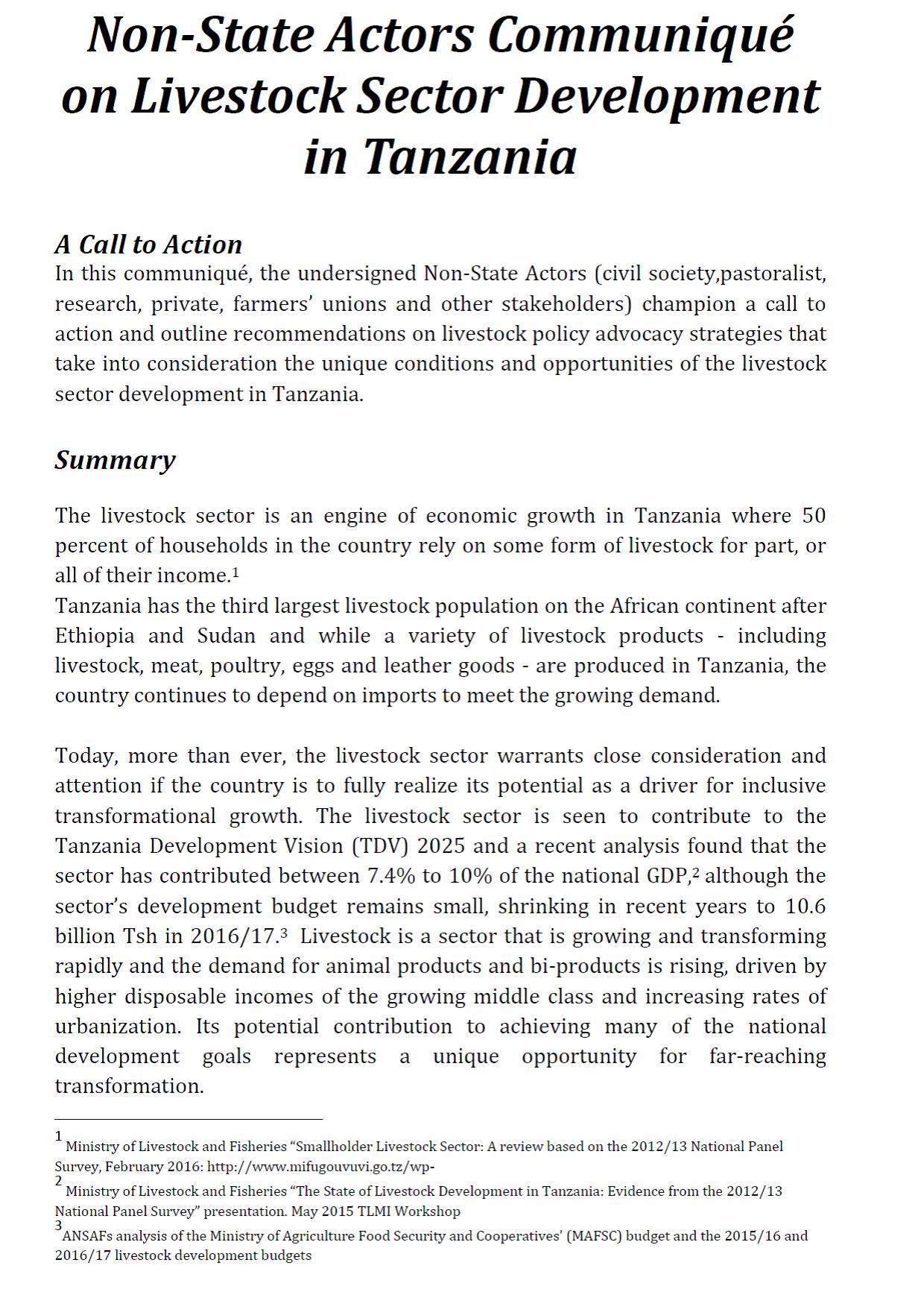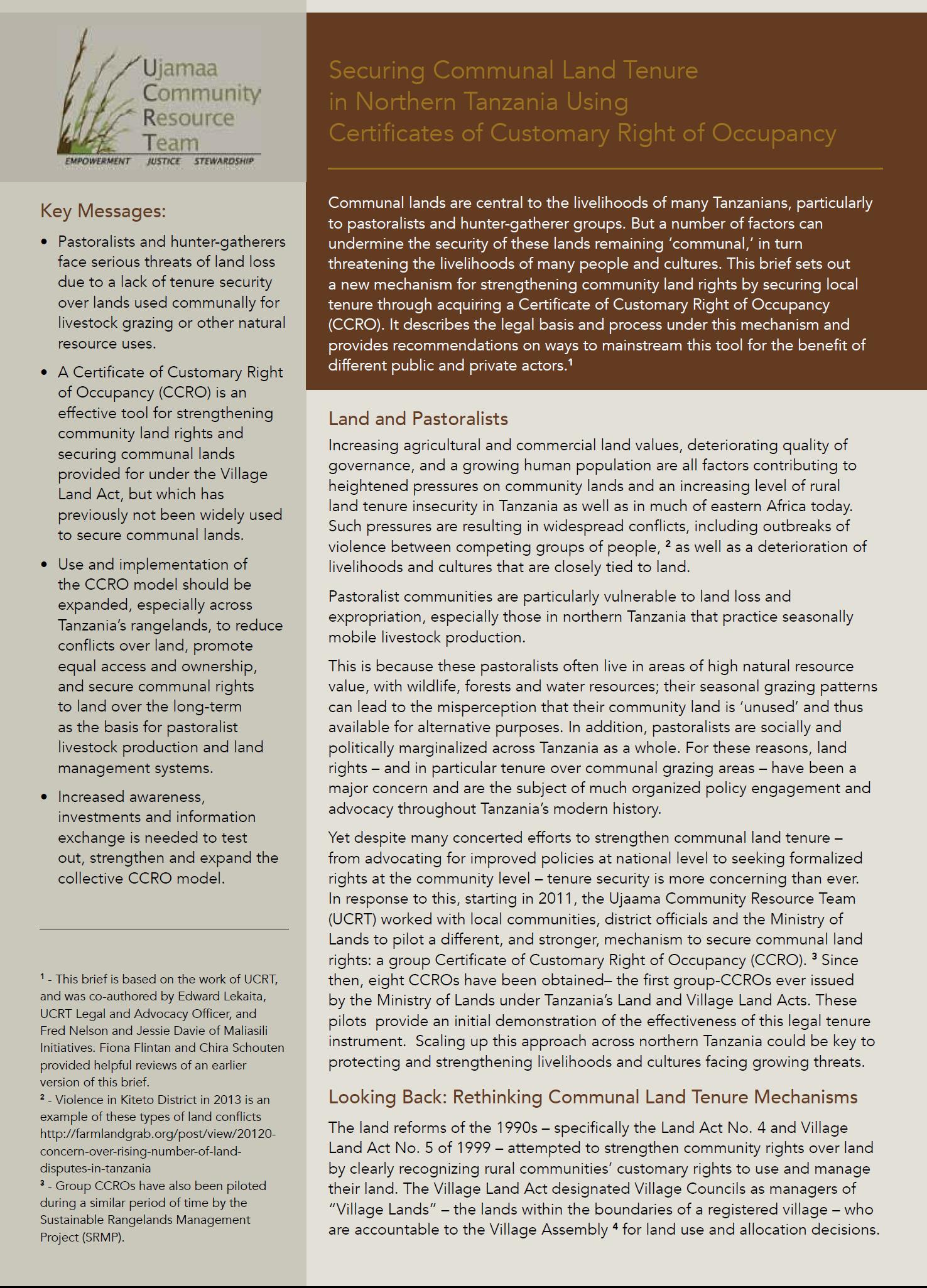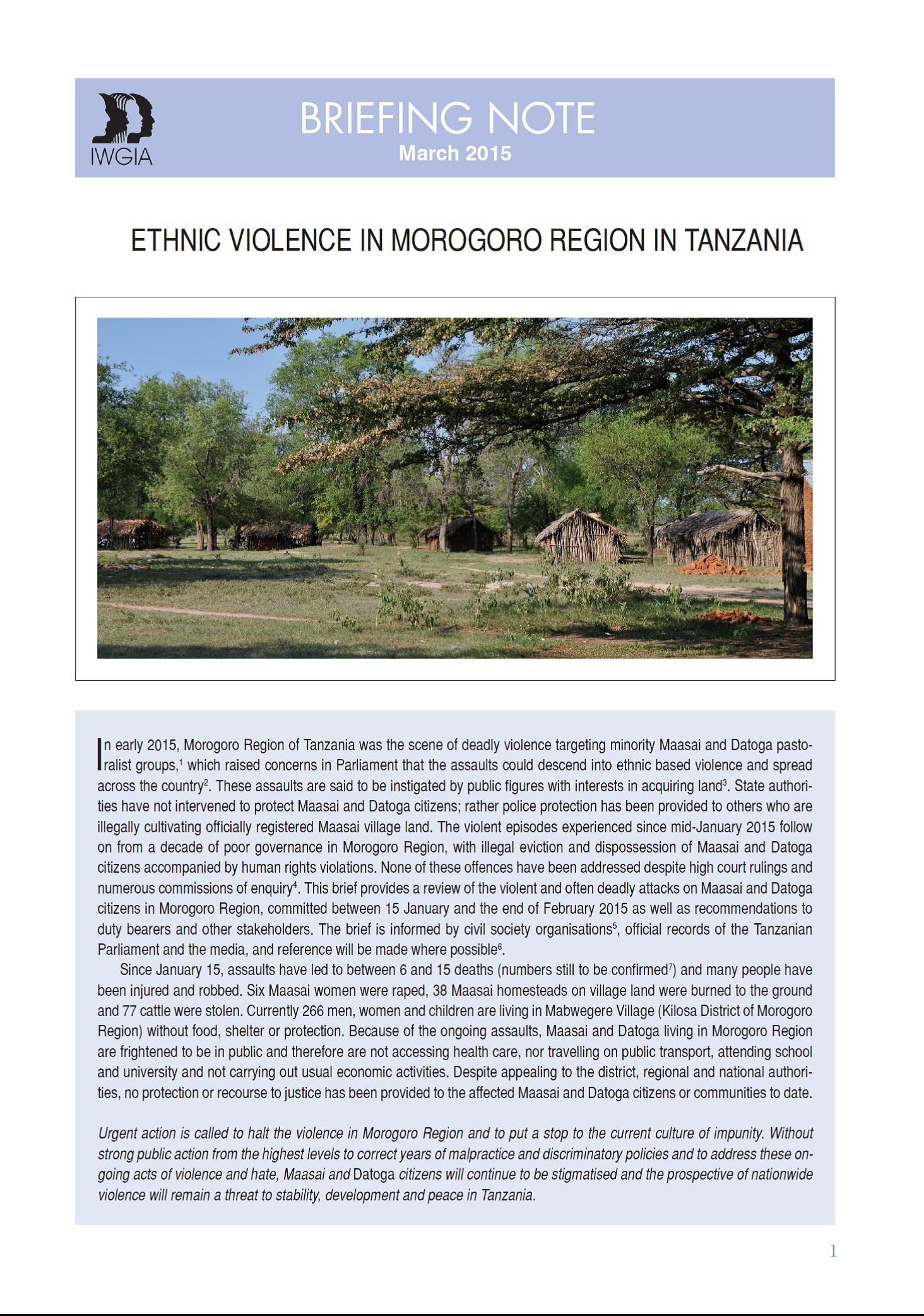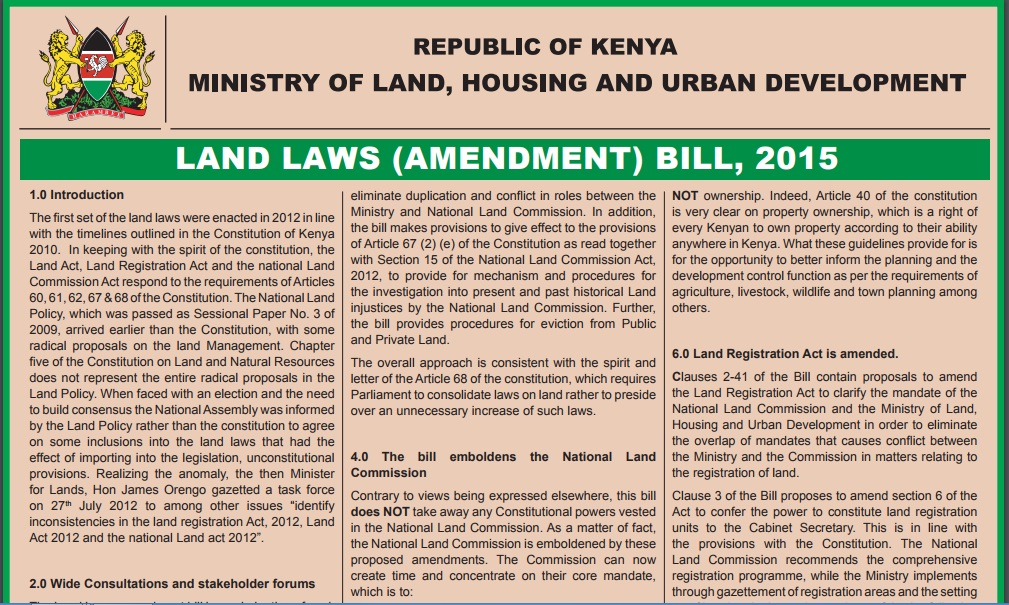Eviction of Pastoralists from Kilombero and Rufiji Valleys, Tanzania
This report springs from series of field visits.Its aim was, among others, to examine further the extent of human rights violations suffered by pastoralists in Kilombero and Rufiji valley during the evictions. It additionally makes recommendations including the need for lobbying against the State’s contempt of court orders












